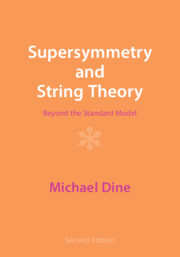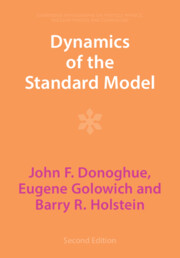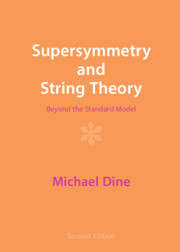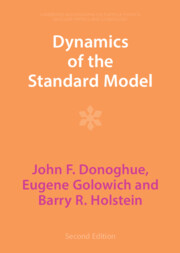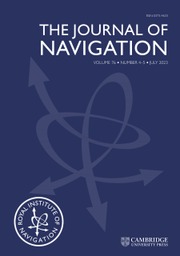An Introduction to the Standard Model of Particle Physics
The second edition of this introductory graduate textbook provides a concise yet accessible introduction to the Standard Model. It has been updated to account for the successes of the theory of strong interactions and the observations on matter–antimatter asymmetry. It gives a coherent presentation of the phenomena and theory that describe neutrino mass as well as an account of progress in the theory of strong interactions. The book develops clearly the theoretical concepts from the electromagnetic and weak interactions of leptons and quarks to the strong interactions of quarks. Each chapter ends with problems, with hints to selected problems provided at the end of the book. The mathematical treatments are suitable for graduates in physics, while more sophisticated mathematical ideas are developed in the text and appendices. First published in 2007, this title has been reissued as an Open Access publication on Cambridge Core.
- Thoroughly updated to take into account recent developments in the field
- Contains a brand new chapter on neutrino physics
- Each chapter ends with problems, with hints to selected problems at the end of the book
- Reissued as an Open Access title on Cambridge Core
Product details
July 2023Paperback
9781009401708
294 pages
246 × 171 × 17 mm
0.525kg
Not yet published - available from February 2025
Table of Contents
- Preface
- Notation
- 1. The particle physicist's view of nature
- 2. Lorentz transformations
- 3. The Lagrangian formulation of mechanics
- 4. Classical electromagnetism
- 5. The Dirac equation and the Dirac field
- 6. Free space solutions of the Dirac equation
- 7. Electrodynamics
- 8. Quantising fields: QED
- 9. The weak interaction: low energy phenomenology
- 10. Symmetry breaking in model theories
- 11. Massive gauge fields
- 12. The Weinberg-Salam electroweak theory for leptons
- 13. Experimental tests of the Weinberg-Salam theory
- 14. The electromagnetic and weak interactions of quarks
- 15. The hadronic decays of the Z and W bosons
- 16. The theory of strong interactions: quantum chromodynamics
- 17. Quantum chromodynamics: calculations
- 18. The Kobayashi-Maskawa matrix
- 19. Neutrino masses and mixing
- 20. Neutrino masses and mixing: experimental results
- 21. Majorana neutrinos
- 22. Anomalies
- Epilogue
- Appendix A. An aide-memoire on matrices
- Appendix B. The groups of the Standard Model
- Appendix C. Annihilation and creation operators
- Appendix D. The parton model
- Appendix E. Mass matrices and mixing
- References
- Hints to selected problems
- Index.


